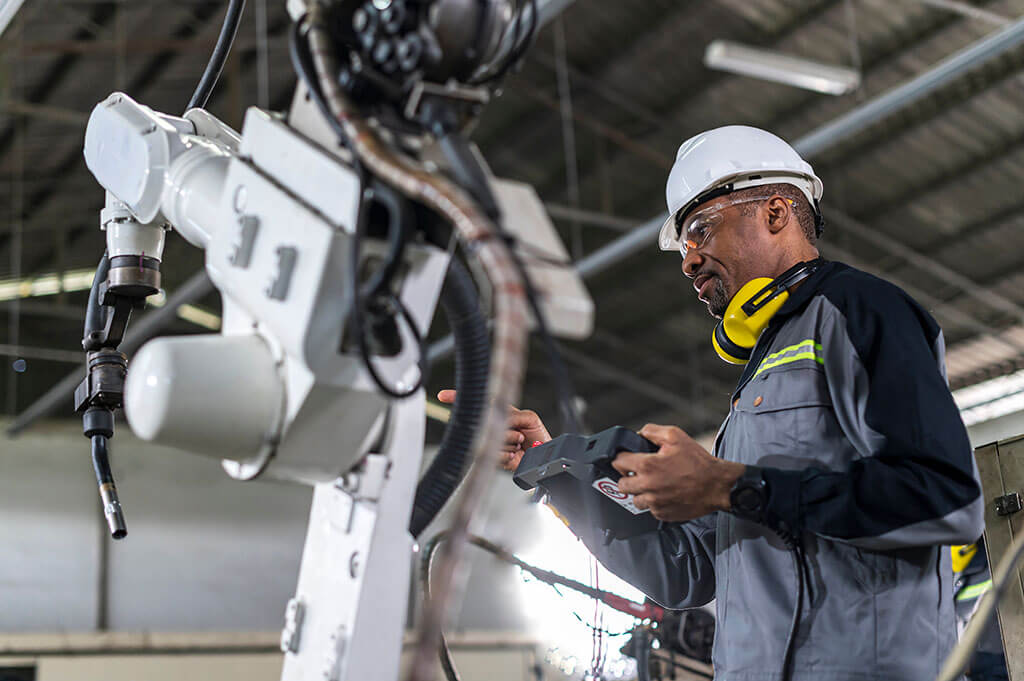Insights
Innovation: Changing what you do? Or just how you do it?
Author
Ant Morse
Head of Innovation and Account Engagement
Virgin Media O2 Business
5 minutes
26th September 2022
Share this article:
Ant Morse, Head of Innovation and Account Engagement at Virgin Media O2 Business, considers the relationship between business challenges, technology and the need to innovate.
Innovation tends to mean different things to different people. There’s the invention of new technology that can disrupt an existing market. There’s radical innovation, involving technological breakthroughs that can create a whole new market. And then there’s the significant improvement of an existing product in a market that’s already established.
However, whilst it’s often technology that sparks or enables innovation, I believe that technology alone isn’t the answer — and that only organisations with the right culture or mindset can expect to be truly innovative. The innovators are the ones who look at a business process or workflow, try something new, and are prepared to accept failure if it leads to lessons learned or greater understanding. It’s about identifying new use cases for developing technologies, rather than simply adopting the technologies themselves.
The development of 5G connectivity is a good example. When the roadmap towards 5G implementation was initially laid out, businesses talked about the benefits in terms of the increased speeds, low latency and reduced power requirements. Valuable as these benefits are, the real value comes from understanding how these technologies can be matched to improving workflows and processes; enhancing productivity, realising efficiencies, enhancing health and safety, and in some cases delivering entirely new revenue streams.
At Virgin Media O2 Business, we have a customer innovation board that helps organisations of all sizes, across a broad range of sectors, to identify specific use cases for new and emerging technologies. When we talked with customers about 5G, we identified 176 separate and unique use cases that the technology might deliver. However, and here’s the really interesting part, when we looked into them individually, fewer than ten actually required 5G connectivity to deliver immediate improvements. All the rest could be achieved using existing and well-established technologies.
If we want to define innovation then, we need to consider it more as a mindset. Ask, “what if?” and challenge existing processes with “why?”. As you embrace each open question, identifying the challenges that you hope technology will solve one day, sometimes you’ll find that the technology is already there.
Innovation has developed from ’nice to do’ to ‘essential requirement’ as a result of three competing pressures:
- The customer wants and expects more - they know what they want, and they expect you to be present in their spaces, not the other way around. If you can’t be there for them then someone else can.
- The employees want and expect more - they have witnessed that flexible and remote working is possible, and many of them like it. What are you doing to implement the skills your business needs, and to retain your best talent?
- The board wants and expects more - and you need the team, as well as the supply chain that can help you.
This pressure to innovate has motivated many organisations to form innovation or technical advisory boards. However, if we consider that innovation is a mindset, maybe we should encourage it across the organisation? Build it in to a culture that become everyone’s responsibility, providing opportunities to capture those ideas, the “what if’s” from people who will look at a problem from a different perspective.
Where to start?
I often suggest that a good starting point is to consider the following questions:
- What change is impacting your industry?
- What challenges do your organisation need to overcome?
- What does your organisation want to achieve?
The sweet spot is where technology can enable what the business wants to achieve. That’s true innovation.
The process
At Virgin Media O2 Business, supporting businesses to embrace innovation is what we do.
It usually starts with a coffee, which kicks off a discussion about the problems the business needs to solve. We often support a customer to form a focused, multi-purpose innovation team - with innovation workshops, recommendation report, preparing the business case and ROI, presenting to the board or developing a proof of concept. Ultimately our motivation is to develop a solution that works - after all, it will likely rely on our network connectivity, so we share your motivation to deliver.
Innovation for all
Certain organisations seem to regard innovation as little more than a box ticking exercise. Their sole motivation for discussing innovation is that they know they are losing jobs due to lack of innovation.
The better discussions appreciate the new roles and opportunities that innovation can introduce. AI can take on certain monotonous tasks, but data scientists and engineers will need to be introduced. Automation for production lines enable just in time manufacturing.
However, for every business that understands the need to innovate, there’s another that thinks it doesn’t apply to them. I worked with a road maintenance business last year, whose CEO began by saying to me:
“We dig holes in roads. How innovative can we be?”
The result? A proof of concept, using augmented reality cameras, that could establish health and safety compliance, ensuring the wearing of appropriate high visibility clothing and hard hats. A year on, and I am busy preparing their third innovation workshop with a focus on the question of how many more holes could be dug in the same amount of time with robots, drones, and automated traffic flow. Productivity, efficiency, health and safety — the three corner stones of what good innovation should always lead to.
Can we help?
Virgin Media O2 Business supports innovative organisations to implement the technology solutions optimised for our network. We want you to innovate in a way that is deliverable, and that maximises the effectiveness of the technology at hand, and the efficiency of our network.
So what’s your problem: Employee engagement? Customer satisfaction? Health and safety? Return to the office? A coffee might be all that’s needed to identify an innovative solution. You can message me on http://www.linkedin.com/in/antmorse
Want to speak to one of the team?
call 0800 064 3790



